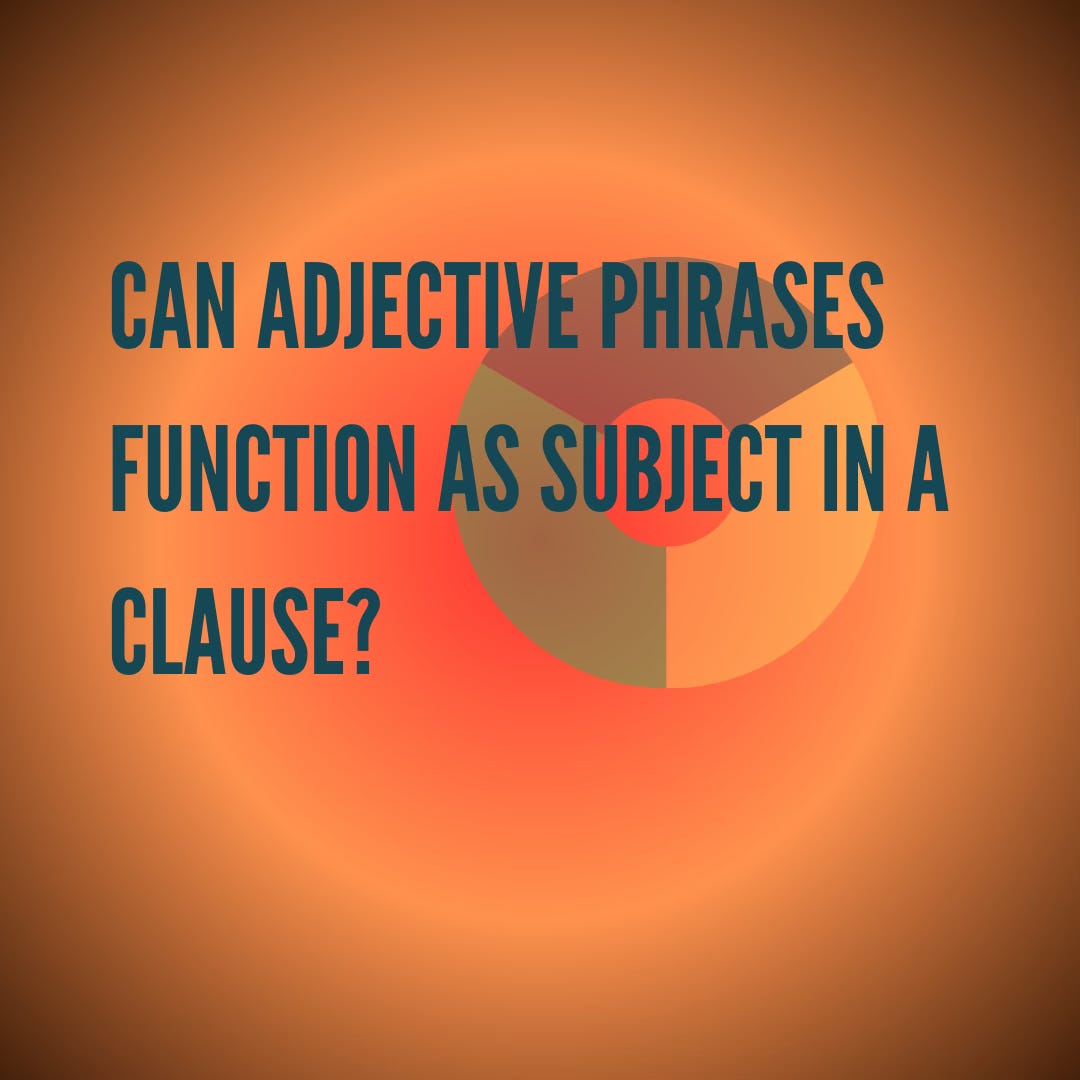Most grammars of English will tell you that adjective phrases cannot normally function as Subject in clauses.
So what about the following examples, which I came across in the press:
The face of Britain that the Starmer government is now presenting to the world is one that aspires to be more muscular while also looking meaner. Muscular is necessary in the scary new world order. Meaner is a myopic mistake that will render Britain less safe.
(Andrew Rawnsley in the Observer on 2 March 2025)
The second and third sentences are noteworthy because it looks like they have adjectives (or, to be precise, adjective phrases) as Subjects.
But is this really the case?
Notice that inversion of the Subject and the verb to form interrogative clauses is not possible:
*Is muscular necessary in the scary new world order?
*Is meaner a myopic mistake that will render Britain less safe?
The possibility of such inversion typically indicates subjecthood.
To my mind something else is going on here. I think that in these cases we are dealing with a mention of muscular and meaner, as notions or ideas, rather than their use. The use/mention distinction is one that is made in philosophy.
In brief, when we use a linguistic expression, it plays a role in the structure in which it occurs, as in I like coffee. Here we are using the word ‘coffee’ in this sentence as a grammatical entity, in this case as a noun phrase that functions as Direct Object. By contrast, when we mention an expression we draw attention to it as a notion or idea, and we use inverted commas or italicisation to do so, as in:
‘Coffee’ is a word that derives from Turkish ‘kahve’ .
(And now notice my use of inverted commas in the second sentence of the paragraph above.)
In the Observer examples the fact that we are dealing with mention, rather than use, becomes clear when we use inverted commas for muscular and meaner :
‘Muscular’ is necessary in the scary new world order. ‘Meaner’ is a myopic mistake that will render Britain less safe.
So although it looks as though muscular and meaner function as Subject, they are really shorthand for the longer implied noun phrases ‘the notion/idea of being muscular’ and ‘the notion/idea of being meaner’.






I was initially puzzled by why this inversion to the interrogative isn't possible: "Is muscular necessary in the scary new world order?" But then I read your explanation and recognized I was already processing usage like this in the way that you describe.
Your explanation helped me *understand* what I was more adapting to than understanding. Thanks.
I can't imagine you'd find "Muscular is necessary" without "muscular" being introduced in the immediately preceding context. Here's a very similar example found on the web, repeating "muscular" from the previous sentence:
"First: congnitive fitness (the ability to think, remember, etc.) is somehow tied to muscles, so a healthy mind needs a healthy, muscular body.
Second: healthy and muscular is necessary, a gym is not. Muscles from walking, running, or riding a bike are perfectly fine."
But given that context, I would be fine with "Is muscular necessary?" In fact, after guessing a few adjective combinations, I found a blog post titled "Is healthy boring?" -- with no direct previous context, other than being on a blog about health. The blog then comments "healthy can feel boring" and "boring can be sexy"!